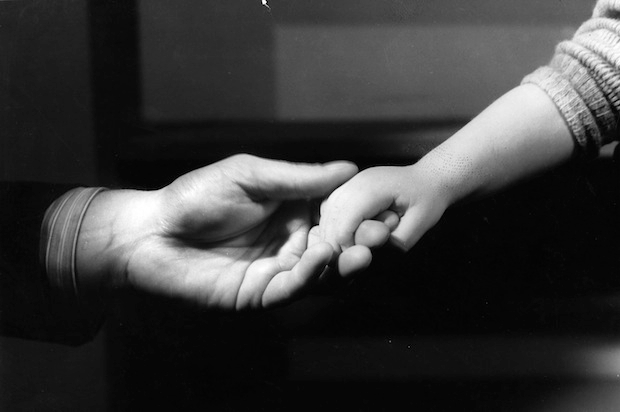As someone with two adopted brothers, I know how important it is to get the adoption system right. Since coming to office, the Government has sought to ensure more children are given the love and support of an adoptive family more quickly.
We’ve simplified the adoption process for those looking to adopt and made it easier for them to access clearer, more comprehensive information. We are giving adopters a more active role in identifying children for whom they might be a good match.
We’re making extra funding available to attract more adopters, with £150 million going to local authorities and £16 million to support voluntary adoption agencies.
For too long, the perfect has been the enemy of the good, leading to unacceptable delays. In future, local authorities will be obliged to speed up the adoption process, and will no longer have to give ‘due consideration’ specifically to ethnicity.
The Children and Families Bill, which is about to go through the House of Lords, encourages ‘fostering for adoption’ placements – meaning children can be quickly placed with foster parents who may later become their adoptive parents. The Bill also gives adoptive parents the same pay and leave rights as birth parents, and imposes a six-month limit on care proceedings in the family justice system.
I’m very pleased that we are now beginning to see an increase in the number of children adopted. Figures released this morning show that the number of adoptions rose by 15 per cent last year, with 510 more children adopted in the year to March 2013. The number of children being adopted is now at its highest since comparable records began in 1992.
Although an extra 510 children being adopted might seem a small number in the scheme of things, for these vulnerable children it has the potential to transform their lives for the better.
When Oliver, the elder of my two adopted brothers, first came to live with us as a foster child, he was just six. But he arrived weighed down with more emotional baggage than personal possessions. We little knew then what lay ahead.
He had been mentally and physically abused and, unsurprisingly, found it difficult to form secure attachments. But, 30 years ago, therapy was neither well-known nor easy to access.
So it was a hard road at times, veering from delight to sheer hair-tearing despair. But with the unconditional support of my parents and our family, Oliver found his feet. He has now set up his own home and recently celebrated his third year in the same job.
There’s no doubt that Oliver, despite not receiving therapy, has gained a great deal from his adoption – as we all have. There are few experiences as rewarding and, potentially, as demanding as building an adoptive family.
Like Oliver, many adopted children have been damaged by terrible experiences whose after-effects can linger well into adulthood, making it hard for them to form attachments to their new parents and then to others. They need help to be able to heal and recover, so they can truly settle in their new families and flourish.
However, all too often such support remains out of reach, with many adoptive families unaware of their rights and entitlements. I have no doubt that if Oliver had received therapy, the last 30 years would have been somewhat easier.
I’m hopeful that the new Adoption Support Fund, launched earlier this month, will go some way to addressing this.
We recently launched the fund with a contribution of £19.3 million to help parents get the best possible support to meet their children’s needs.
The money will pay for support such as attachment-based therapy, intensive family support and play and music therapy.
We know that these services can be life-changing for adoptive families.
Families like the couple who saw music therapy transform their highly anxious adopted son into a sociable and popular little boy.
Or the parents of three adopted siblings who found that attachment therapy made an ‘immeasurable’ difference in helping the children come to terms with what had happened to them and helping them, as parents, better understand the children’s behaviour.
I want as many adoptive families as possible to benefit from this kind of help through the fund which, following a trial, will be rolled out nationally in 2015.
So, while there is clearly much more to do, I’m confident that we are on the right track.
For Oliver, and for many other vulnerable children who have often known so much hurt and upheaval in their short lives, the permanence of adoption is a wonderful gift. I’m determined to do everything I can to make sure that many more find loving homes for good.
Edward Timpson is the Conservative MP for Crewe and Nantwich. In September 2012 he was appointed Parliamentary Under Secretary of State for Children and Families.






Comments